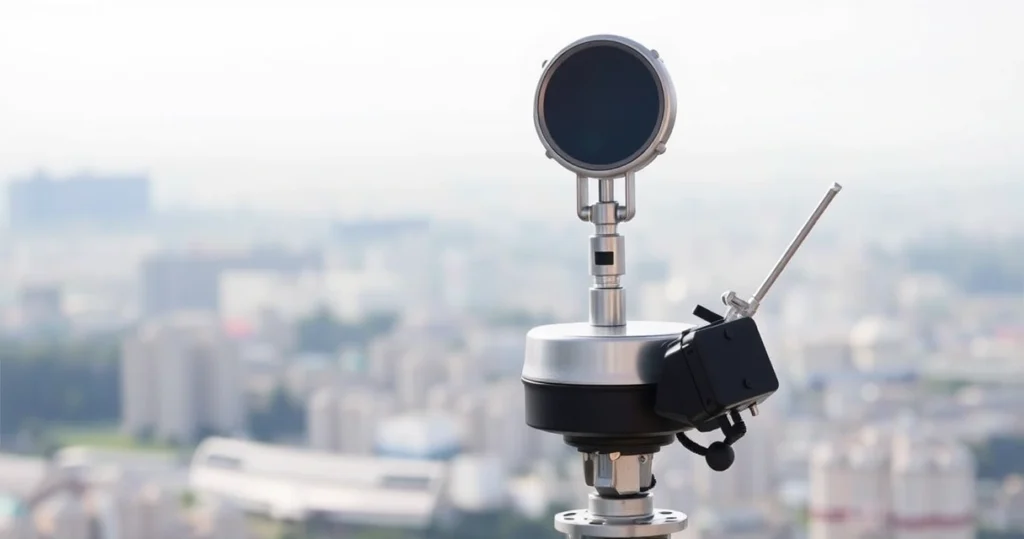In a significant move aimed at bolstering national security and technological independence, the Brazilian government has initiated a project to develop a homegrown GPS system. This initiative, driven by a working group, seeks to establish a national navigation system utilizing proprietary technology. The push towards a national GPS is not only about enhancing navigational capabilities but also about reducing Brazil’s dependency on foreign services, particularly in an era where geopolitical tensions can impact critical technologies.

The decision to pursue a national GPS system comes at a time when Brazil is reevaluating its technological dependencies. The initiative reflects a broader strategy to ensure that the nation can secure its navigation infrastructure and protect its interests. By investing in local technology development, Brazil aims to foster innovation within its borders while also ensuring that it is not vulnerable to external pressures that could disrupt essential services.
The Context of Brazil’s GPS Initiative
The Brazilian government’s GPS initiative arises from several factors, including the increasing dependence on foreign navigation systems and the vulnerability that accompanies it. Currently, Brazil relies heavily on Global Navigation Satellite Systems (GNSS) operated by foreign countries, primarily the United States’ GPS and Russia’s GLONASS. This dependency raises concerns about data security, reliability, and national sovereignty.
Geopolitical Considerations
In recent years, geopolitical tensions have highlighted the risks associated with relying on foreign technology. Disputes between nations can lead to interruptions in services that are crucial for various sectors, including transportation, agriculture, and public safety. By developing its own GPS, Brazil aims to mitigate these risks and ensure that its navigation systems remain uninterrupted and secure.
The Working Group’s Objectives
The working group established by the Brazilian government has clear objectives in mind. Their primary goal is to propose a comprehensive plan for a national navigation system that is both technologically advanced and self-sufficient. This entails several key components:
- Research and Development: Focus on creating a robust technological framework to support a national GPS.
- Collaboration with Local Industries: Encourage partnerships with Brazilian companies and universities to foster innovation.
- International Standards Compliance: Ensure that the developed system meets global navigational standards.
- Implementation Strategy: Develop a phased approach for deploying the national GPS across various sectors.
Technological Development and Innovation
At the heart of Brazil’s GPS initiative is the commitment to technological development. The government recognizes that fostering a domestic technology ecosystem is essential for the success of the project. This involves investing in research and development to create the necessary infrastructure for a national GPS system.
Investment in Research and Education
To achieve its goals, the Brazilian government plans to invest in research institutions and educational programs that specialize in satellite technology and navigation systems. By equipping the next generation of engineers and scientists with the skills needed for such projects, Brazil can ensure a sustainable approach to technology development.
Potential Benefits of a National GPS
The establishment of a national GPS system is expected to bring numerous benefits to Brazil. These advantages extend beyond mere navigational accuracy and touch upon various aspects of national interest:
- Enhanced Security: A national GPS can significantly improve national security by ensuring that critical navigational data is not compromised.
- Economic Growth: The initiative can stimulate the local economy by creating jobs in technology development and related sectors.
- Technological Sovereignty: Reducing reliance on foreign systems enhances Brazil’s technological independence.
- Improved Services: Accurate and reliable navigation can lead to better services in industries such as logistics, transportation, and emergency services.
Challenges Ahead
While the initiative to develop a national GPS system is promising, it is not without challenges. The Brazilian government will need to navigate various obstacles to ensure the project’s success:
Funding and Resources
Securing adequate funding and resources for the project is crucial. The government will need to allocate significant investments for research, development, and infrastructure. Collaborating with the private sector and seeking international partnerships could help alleviate some of the financial burdens.
Technical Expertise
Developing a national GPS requires specialized knowledge and skills in satellite technology, signal processing, and systems engineering. Brazil will need to attract and retain talent in these fields to ensure that the project is staffed with capable professionals.
Frequently Asked Questions (FAQ)
1. What is the purpose of Brazil’s national GPS initiative?
The initiative aims to develop a homegrown GPS system to reduce reliance on foreign navigation services and enhance national security.
2. How will Brazil’s national GPS differ from existing systems?
The national GPS will utilize proprietary technology developed within Brazil, ensuring greater control over navigational data and services.
3. What are the expected benefits of a national GPS for Brazil?
Benefits include enhanced security, economic growth, technological sovereignty, and improved services across various industries.
4. What challenges does Brazil face in implementing this initiative?
Challenges include securing funding, attracting technical expertise, and ensuring compliance with international standards.
5. When is Brazil expected to roll out its national GPS system?
The timeline for rollout has not been officially announced, as the project is still in the planning phases, but the government is actively working on it.
Conclusion
Brazil’s initiative to launch a national GPS system marks a pivotal step towards reducing foreign dependency and enhancing national security through technological self-sufficiency. As the project progresses, it will undoubtedly face challenges, but the potential benefits promise significant impacts across various sectors in Brazil. By investing in local technology development, Brazil not only aims to secure its navigational infrastructure but also to foster innovation and economic growth within its borders. The success of this initiative will rely on effective collaboration among government, industry, and academia, paving the way for a more independent and resilient Brazil in the realm of technology.
📰 Original Source
Este artigo foi baseado em informações de: https://tecnoblog.net/noticias/antes-mesmo-do-tarifaco-governo-do-brasil-comecou-a-trabalhar-em-gps-nacional/



